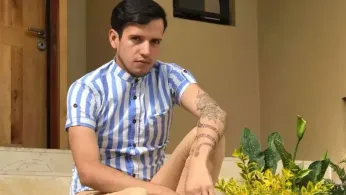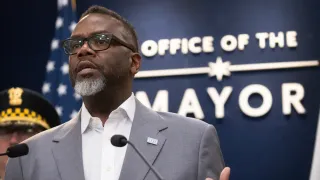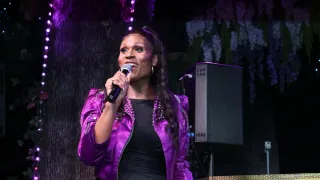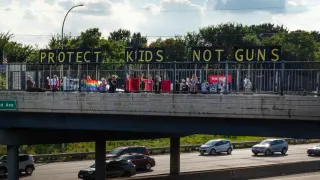
Jul 24
Gay Makeup Artist Andry Hernández Romero Details Harrowing Abuse at El Salvador’s CECOT Prison After Release
READ TIME: 3 MIN.
Andry Hernández Romero, a 32-year-old gay makeup artist from Venezuela, is now home after surviving nearly 125 days in El Salvador’s notorious CECOT prison. Speaking to journalists from his family home in Capacho, Venezuela, Hernández Romero described his detention as “an encounter with torture and death” . He recounted both sexual and physical abuse at the hands of prison staff, as well as deprivation of food and isolation, which he says left lasting wounds on both his body and spirit .
Hernández Romero’s ordeal began after he sought asylum in the United States, fleeing anti-LGBTQ+ and political persecution in Venezuela. Upon arrival at a border crossing in San Diego, he was detained by U.S. Immigration and Customs Enforcement (ICE), who misidentified his tattoos as gang-related. Despite his explanations that the tattoos honored his parents and referenced the “Three Kings” festival from his hometown, he was deported under a Trump administration policy targeting alleged gang members using the Alien Enemies Act—a wartime law . He was subsequently transferred to CECOT, a maximum-security facility in El Salvador with a reputation for human rights abuses and harsh conditions .
According to Hernández Romero and corroborated by interviews with Reuters, detainees at CECOT—including more than 250 Venezuelan men deported from the U.S.—were beaten with nightsticks, shot with rubber projectiles, and kept in dark, overcrowded cells. “Many of our fellows have wounds from the nightsticks; they have fractured ribs, fractured fingers and toes, marks from the handcuffs,” Hernández Romero said. “Others have marks on their chests, on their face ... from the projectiles” .
Hernández Romero further alleges he was subjected to sexual violence by guards—an experience he shares with other LGBTQ+ detainees who have historically faced heightened vulnerability in detention settings . During his captivity, he and others were denied access to legal counsel and family contact, raising urgent questions about due process and the treatment of LGBTQ+ individuals in international detention systems .
On July 18, Hernández Romero was unexpectedly released as part of a prisoner exchange involving 10 U.S. citizens held in Venezuela and the mass transfer of Venezuelan men out of CECOT . Legal advocates, including the Immigrant Defenders Law Center, had campaigned vigorously for his release, highlighting the dangers faced by LGBTQ+ people in both Venezuela and Central American detention facilities .
While Hernández Romero is now reunited with his family, activists warn that his safety remains precarious. Venezuela is known for its climate of anti-LGBTQ+ discrimination and violence, the very conditions that led Hernández Romero to seek asylum abroad . Attorneys and advocacy organizations continue to press for international protections for LGBTQ+ asylum seekers and for accountability for abuses at CECOT and similar facilities .
The LGBTQ+ community and allied organizations have rallied around Hernández Romero, organizing vigils, social media campaigns, and legal efforts to draw attention to his plight and those of others held under similar circumstances . In his first public statements after release, Hernández Romero expressed deep gratitude: “It fills me with so much peace, so much comfort, so much tranquility that I was never alone, from day one. There were many people who worried for me” .
Advocates say Hernández Romero’s story underscores the urgent need for reform in how LGBTQ+ individuals are treated in immigration and detention systems globally. Organizations including the Immigrant Defenders Law Center and NEW Pride Agenda are calling for investigations into the reported abuses at CECOT and increased protections for LGBTQ+ asylum seekers facing deportation or arbitrary detention .
As global attention focuses on the intersection of migration, LGBTQ+ rights, and state-sanctioned violence, Hernández Romero’s account is a stark reminder of the dangers many still face—and the power of collective advocacy to demand justice and safety for all.






